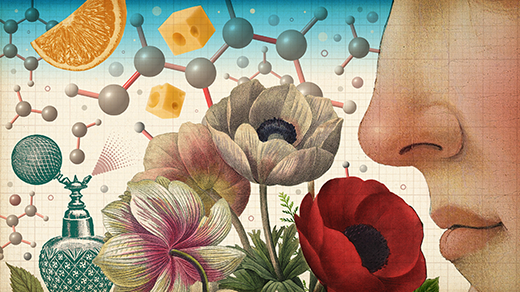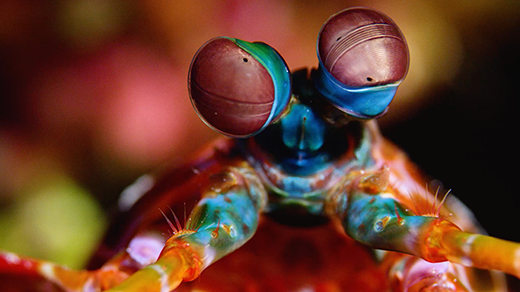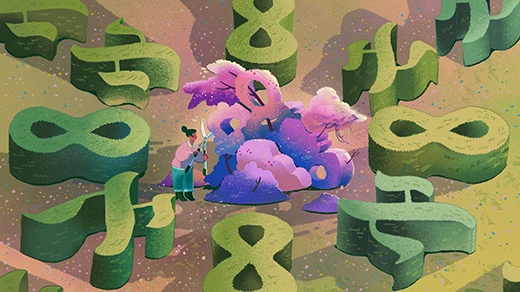Latest Articles
How Smell Guides Our Inner World
A better understanding of human smell is emerging as scientists interrogate its fundamental elements: the odor molecules that enter your nose and the individual neurons that translate them into perception in your brain.
Physicists Start To Pin Down How Stars Forge Heavy Atoms
The precursors of heavy elements might arise in the plasma underbellies of swollen stars or in smoldering stellar corpses. They definitely exist in East Lansing, Michigan.
Researchers Uncover Hidden Ingredients Behind AI Creativity
Image generators are designed to mimic their training data, so where does their apparent creativity come from? A recent study suggests that it’s an inevitable by-product of their architecture.
When Did Nature Burst Into Vivid Color?
Scientists reconstructed 500 million years of evolutionary history to reveal which came first: colorful signals or the color vision needed to see them.

How Does Graph Theory Shape Our World?
Maria Chudnovsky reflects on her journey in graph theory, her groundbreaking solution to the long-standing perfect graph problem, and the unexpected ways this abstract field intersects with everyday life.
A New Pyramid-Like Shape Always Lands the Same Side Up
A tetrahedron is the simplest Platonic solid. Mathematicians have now made one that’s stable only on one side, confirming a decades-old conjecture.
Matter vs. Force: Why There Are Exactly Two Types of Particles
Every elementary particle falls into one of two categories. Collectivist bosons account for the forces that move us while individualist fermions keep our atoms from collapsing.
Is Mathematics Mostly Chaos or Mostly Order?
Two new notions of infinity challenge a long-standing plan to define the mathematical universe.
How AI Models Are Helping to Understand — and Control — the Brain
Martin Schrimpf is crafting bespoke AI models that can induce control over high-level brain activity.







